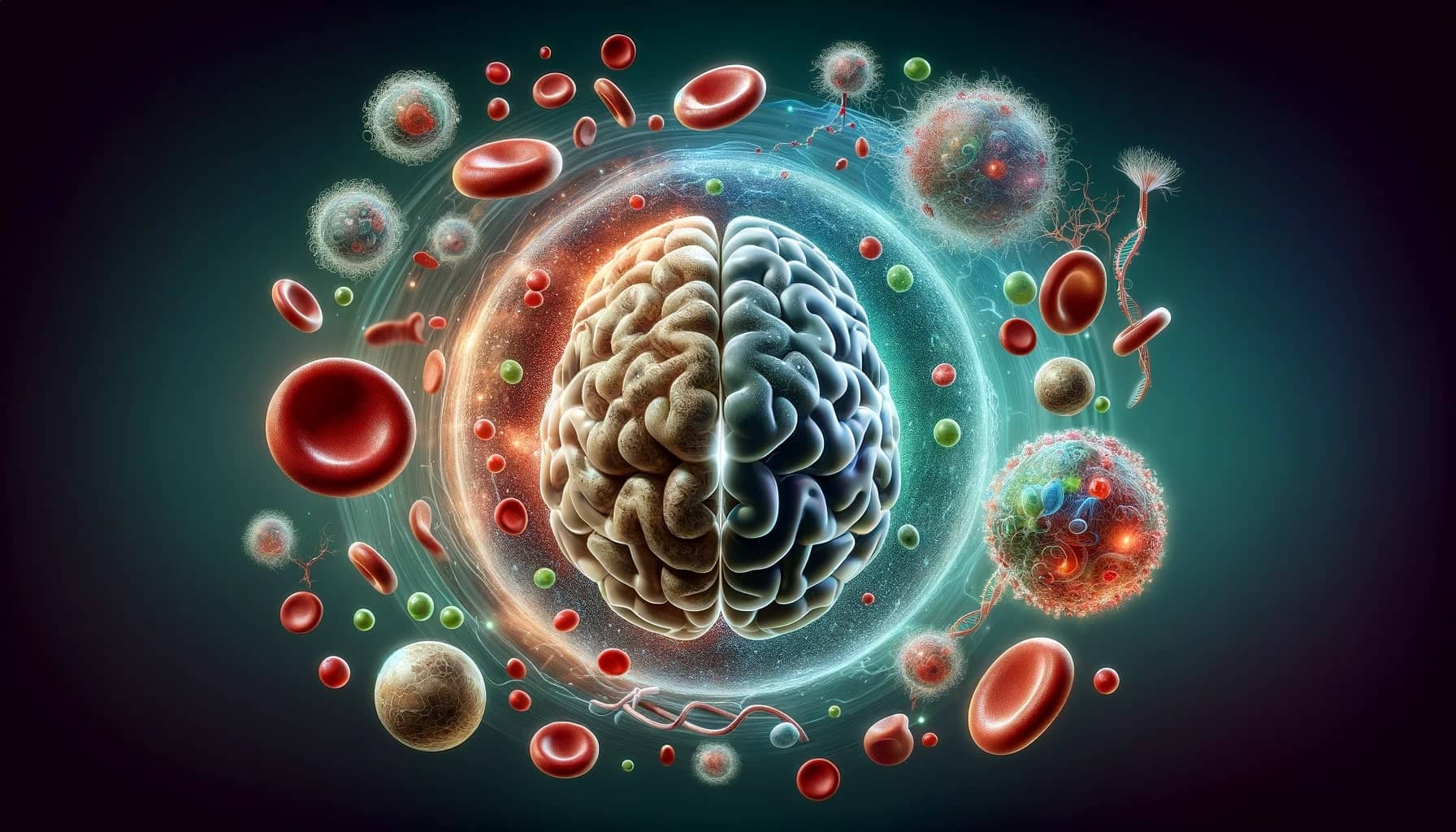
The Role of Blood Factors in Brain Aging and Rejuvenation
As we get older, our brains don’t work as well as they used to, which can lead to memory problems and difficulty thinking. But did you know that the answer to slowing down these changes might be in our blood? Scientists are studying how different things in our blood affect our brains as we age. This research is uncovering some amazing connections between our blood and our brain.
The Impact of Aged Blood
Studies have found that as we age, some things in our blood can make our brains work less effectively. By studying animals and how old blood affects them, researchers have discovered that old blood can make the brain act older, too.
Pro-Aging Blood Factors
Scientists are using fancy techniques to find specific things in our blood that increase with age and make our brains age faster. When these factors are given to younger individuals, they start showing signs of aging in their cells and brains.
Inflammatory Responses and Brain Health
Proteins called cytokines and chemokines, which help our body fight infections, can be harmful when there’s too much of them in old blood. They can cross into the brain and hurt its ability to create new cells, which is important for learning and memory.
β2-Microglobulin and Cognitive Impairment
Another important factor is β2-microglobulin (B2M). High levels of B2M in older mice and humans are linked to poorer brain cell growth and thinking abilities. This is also seen in diseases like Alzheimer’s.
Targeting B2M for Brain Rejuvenation
Excitingly, reducing B2M in older mice helps their brains work better. This suggests that managing B2M levels could help fight brain aging.
The Aging Immune System
Changes in our immune system as we age, especially in our blood-producing stem cells, also play a role in brain aging. For example, older stem cells transplanted into younger mice can make their brains act older.
The Brain’s Blood Vessels as Aging Mediators
The blood vessels in our brain also contribute to aging. Factors produced by these vessels in old mice and humans are linked to decreased brain cell growth and poorer thinking skills.
Targeting Vascular Factors
Using treatments that target these blood vessel factors, like VCAM1, has shown promise in improving brain health in older mice.
The Power of Young Blood
One of the most exciting discoveries is that young blood can rejuvenate an old brain. Researchers are trying to figure out which parts of young blood are responsible for this.
Exercise and Brain Health
Exercise is great for our brain health. When we exercise, our muscles release factors that can improve brain function in older animals. For example, a factor called IGF1, which increases with exercise, helps with brain cell growth and thinking skills.
The Liver-to-Brain Axis
New research shows that the liver also sends beneficial factors to the brain, especially after exercise. These factors improve blood flow, connections between brain cells, and thinking abilities in older mice.
Conclusion
The connection between our blood and brain health is a growing area of research. Understanding how blood factors affect our brain as we age could lead to new ways to keep our brains healthy as we get older. The future looks promising for developing treatments to improve brain health throughout our lives.
